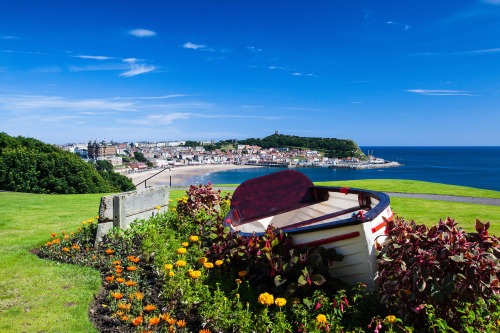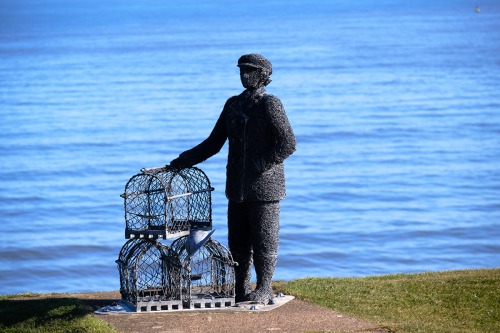RNLI Teams on How to Stay Safe by the Coast
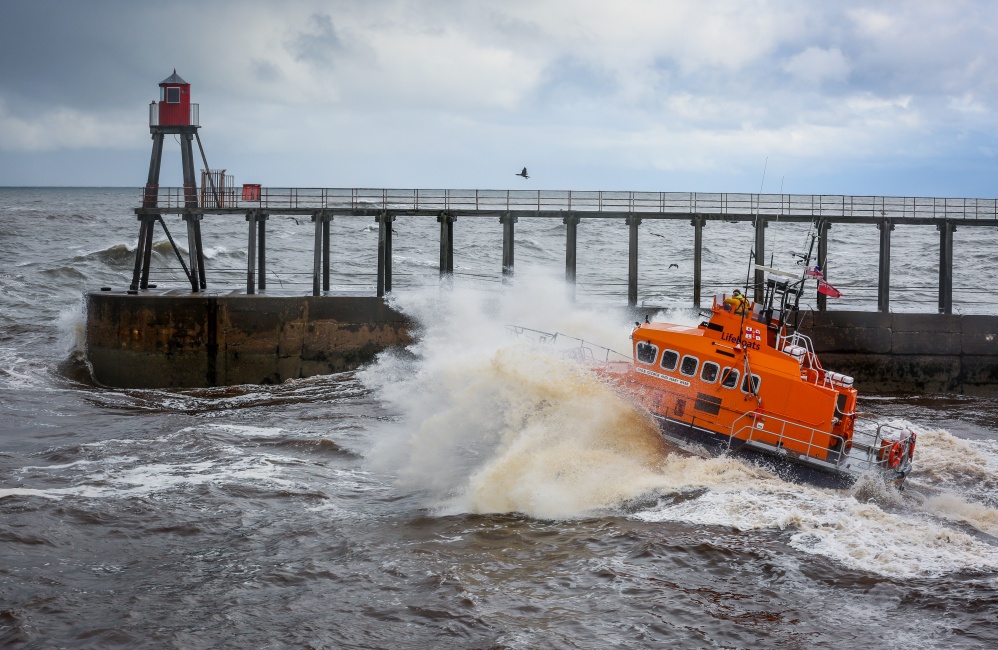
As so many staycationers head to the coast for their holidays this summer, we thought it a great time to highlight the life-saving work of our RNLI volunteers and staff, and get the best tips to make sure our breaks go swimmingly
RNLI crew along the North East coast share what we can do to stay safe by the sea.
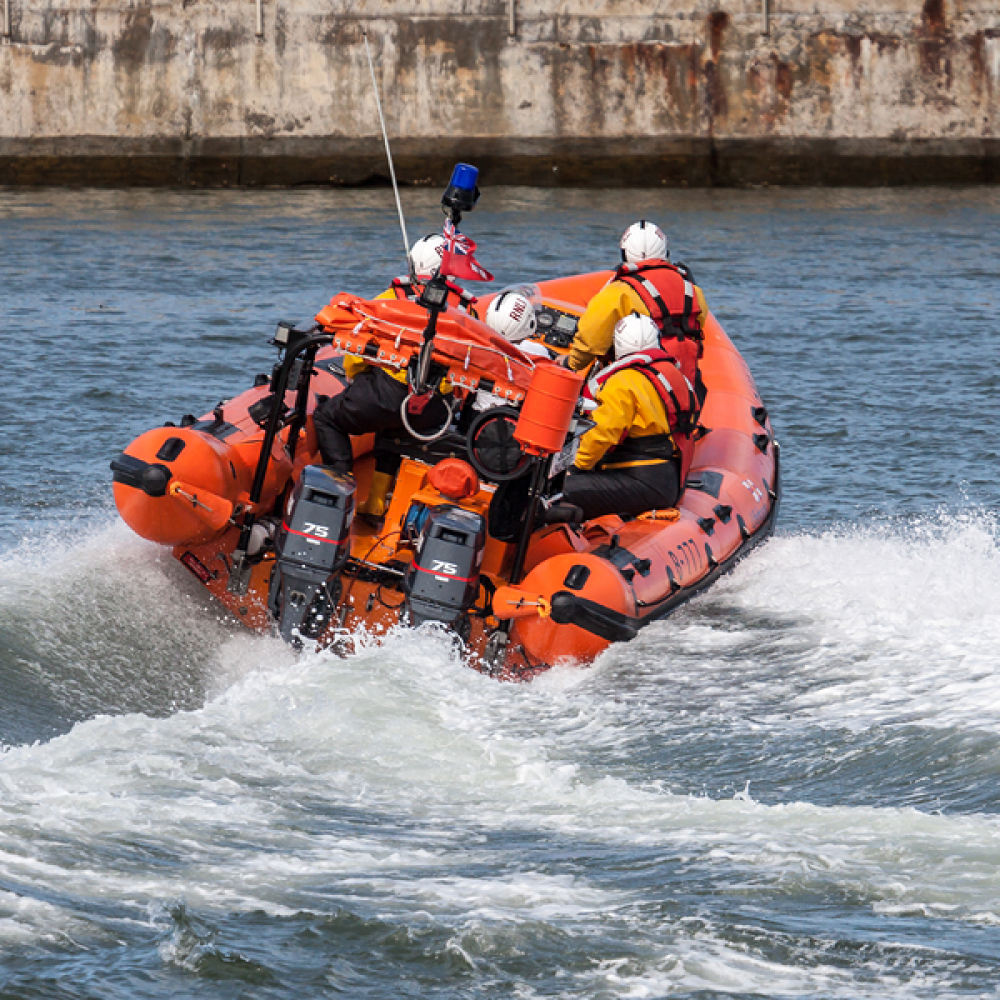
During its long history, Blyth Lifeboat Station has been presented with a total of 16 awards for gallantry. Today, the station has two inshore lifeboats: a D class and a B class Atlantic 85. For the RNLI, the naming of a lifeboat has been important since the charity began in 1824, and naming ceremonies continue to this day. Many of the lifeboats are named after people, often to celebrate that person’s support for the RNLI, or to commemorate a volunteer.
Blyth Lifeboat Station is based at the busy port – there’s a yacht club and a boating association too, so there’s always something happening on this part of the coast. ‘For that reason, we get a range of things to do,’ Jordan Holmes, the youngest helm at the station, who is also a trainee mechanic, explains. ‘Last summer we were expecting it to be busy like usual but the jobs we were getting were a bit more serious, such as mental health incidents. Now that summer is here again, we’re expecting to be very busy – especially during the school holidays. We’re a good station because we do a lot of scenario training so we’re prepared for most things.’
Their work is never predictable, and like many other volunteers and staff, Jordan spends many hours of his own time training, and could be called out to an incident at any time. It’s a big commitment. Volunteer crew are those physically saving lives at sea in harsh and often traumatic conditions. They are available 24/7, whatever the weather. To be a successful volunteer, you must be over 17 years old, physically fit and healthy, live and work close to a lifeboat station and be a good team player. But hard work does pay off: in January, Jordan was assessed for his passing out as the youngest helm on the D class inshore lifeboat, which involves carrying out several tasks set by an RNLI assessor to ensure that he can safely control the lifeboat and instruct the crew. The helm is a volunteer in charge of the inshore lifeboat when launching, at sea and when the boat is being recovered and made ready for the next rescue. That means Jordan is responsible for the safety of the crew onboard and for everything that happens during a rescue.
Read More: What to Do Near the Coast When it's Raining
Jordan is very much part of the RNLI family in Blyth – something he is grateful for. ‘Working for a lifeboat station gives you a very different family outside your own,’ he says. ‘The stations are very close-knit, and when you join the RNLI you stay for the family you create. You can often speak to crew members about things you might not be able to speak to your family about. The social aspect is what makes it so great, but the rewarding part is saving lives. That satisfaction you get when you know you’ve done your best is incredible, and when they come back to the station a few days later and thank you, it’s massively rewarding.’
It mustn’t be forgotten that the RNLI is a charity, and therefore relies on fundraising and donations to keep saving lives. In Blyth, the station focuses on fundraising events including charity car washes, which Jordan says bring in just as much money as open days.
How can we stay safe by the sea?
‘Everywhere has its risks; you just need to identify them and to be sensible. People certainly shouldn’t stop doing what they enjoy, they just need to be a bit more cautious. In our area, we don’t have lifeguarded beaches, but just 10 minutes further down the coast we do. At the beach everyone wants to have fun, but not everyone intends to be in the water. One of the biggest things we remind people of when they visit the station is knowing who to call when in need. People remember the fire service, ambulance and police – but many forget the coastguard. I’d also remind people when they go to the beach to go with someone else, and if not, to let others know where they are going and what their plans are. Make sure you have the right equipment too, especially if you are going on to (or into) the water. Don’t push yourself too far to show off. A lot of people my age try to show off in front of their friends, and that’s when things can go wrong. Stay safe and enjoy the summer.’
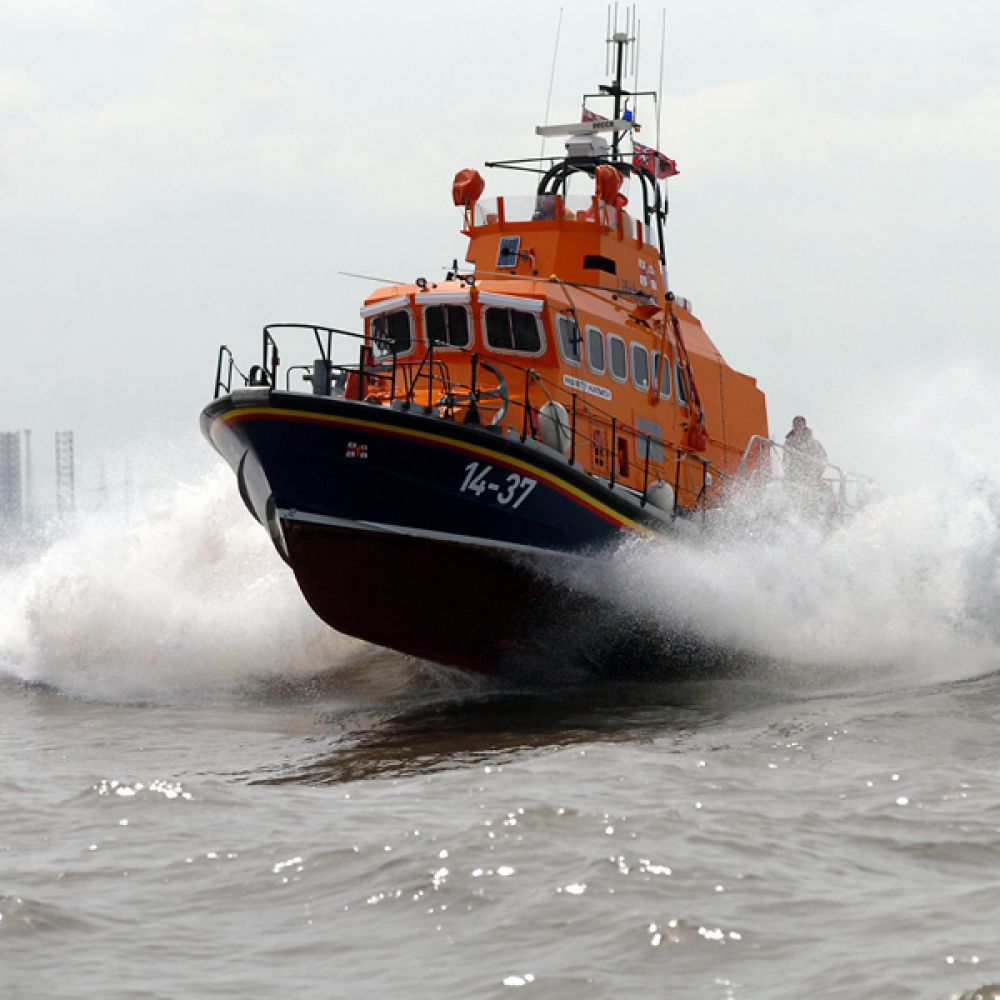
For more than 200 years, this lifeboat station has been deploying boats from Hartlepool, and now it operates two lifeboats – an all-weather Trent class, and a B class Atlantic 85 so they can operate inshore, and importantly offshore too. The crews here have been presented with 23 awards for gallantry, including one gold medal.
One individual who is particularly proud of that is Steve Pounder, former crew member turned deputy launch authority. He’d been a crew member for 24 years until 2020, when he began his new role. ‘It’s a big change to stand in the boat house and watch the boat leave while you’re stood there thinking “that used to be me”,’ Steve says. ‘Now, my role is all about making sure the boat goes out safely.’
Having both an inshore and offshore lifeboat means Hartlepool’s crew are flexible in the jobs they can take on. ‘It may be a fishing vessel that has broken down and is in need of assistance to tow back to port, for instance,’ Steve explains. ‘A recent one was where we had a man overboard, so I paged both of our lifeboats to launch because it was only three miles off shore.’
Read More: How Saltburn's Yorkshire Sea Salt Co. are Bringing Back a 6,000-year-old Tradition
Steve recorded around 56 call outs in 2020. ‘Considering we were in between lockdowns with very few fishing boats going out and no pleasure boats going to sea, a lot of the jobs we were called to were distressed people – unfortunately that’s the same up and down the coast,’ he says. ‘Now, more people are heading to the beach. Recently, we had four jobs over two days – all different – one was a yacht that had got stuck while coming into the marina, one was a fishing boat that had broken down, one was a pleasure boat that had broken down, and the other was to assist the coastguard with a missing persons case.
‘You never know what it’s going to be. It can happen any time – day or night. It could happen now while I’m talking to you and I’d just have to drop what I’m doing and go.'
Like many other volunteers, Steve describes his fellow crew members as a family, and says they have a special bond. ‘Before Covid, we’d try to get together with all the families (wives, girlfriends and children) a couple of times a year socially,’ he adds. ‘We’re very tight-knit. The station is well looked after by all the crew too. It’s a good place to be. It’s been a tough old year for us, like all families, and we’re still restricted to only meeting for work (in small groups).’
Where are you called out to most often?
‘I suppose the dangerous bit is the promenade. When the tide’s in and we have rough weather and it’s splashing up against the sea wall, wave dodging is very dangerous. People run towards the waves as they’re crashing against the sea wall, then run away trying not to get wet – sadly people slip and go into the sea. We’ll get busier as the schools break up again because Seaton Carew is like a magnet for visitors in the summer.’
How can we stay safe by the sea?
‘The best way to stay safe is to stay with another person, and for children to always stay with adults. Adults should always be aware of how strong the sea is. People don’t realise that a cubic metre of water weighs a ton. I’ve done talks in schools and one of my analogies is: a Nissan Micra weighs about a ton. Could you stop it if it was rolling towards you? People don’t realise how powerful the sea is, rolling in and out it can easily pull you into the water. If you are heading to the beach always let people know where you are. Make sure you’ve got your mobile phone with you, so you can call 999 and ask for the coastguard. For people who go kayaking or surfing, wear something bright. A lot of people wear black wet suits, but if they’re wearing something bright they are so much easier to spot if they get into difficulties.’
The Redcar Lifeboat Station is one of the oldest lifeboat stations maintained around the coast of the British Isles, and is home to the Zetland – the world’s oldest surviving lifeboat. Sitting on the Esplanade, the lifeboat station today houses Atlantic 85 and IB1 class lifeboats.
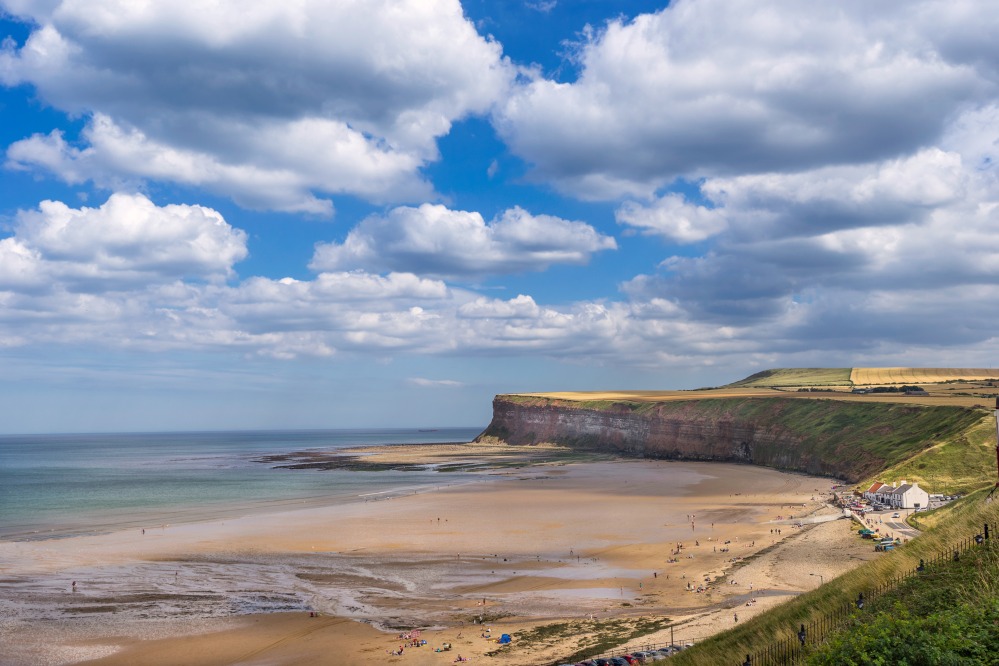
You may have spotted their crew members on popular TV documentary Saving Lives at Sea, including helm Cameron Bond; his role is to make sure the boats go to sea and get back safely with all the crew. ‘We’re quite a busy station and average around 40 call outs per year,’ Cameron tells us. ‘2020 was exceptionally busy though. In the first week when lockdown was lifted, we had three or four call outs in just one week. It was a big jump. People were being cut off by the tide, and a child went out to sea in a dinghy and had to be rescued.
‘Our call outs range from broken down fishing boats and people with broken legs to anyone at risk on the cliffs and people getting cut off by the tide. In one instance, last February, it was blowing a westerly gale and we were paged to a father and son under the cliff, trapped by the tide – it was a very testing time.’ This was one incident that was featured on Saving Lives At Sea. 'At our station we pride ourselves on being on the ball at all times. We’ve got a cracking training co-ordinator and we’re really efficient, so luckily we’ve been able to work through this.’ Cameron is rightly proud of his work and his station. ‘There’s no better feeling than saving somebody’s life. It makes the hairs on the back of your neck go up. It’s an amazing thing to do.’
How can we stay safe by the sea?
‘Always watch the tide. If you’re walking along the cliffs of Redcar and Saltburn take care, and if you want to swim in the sea, swim in between the areas where the lifeguards are watching you.’
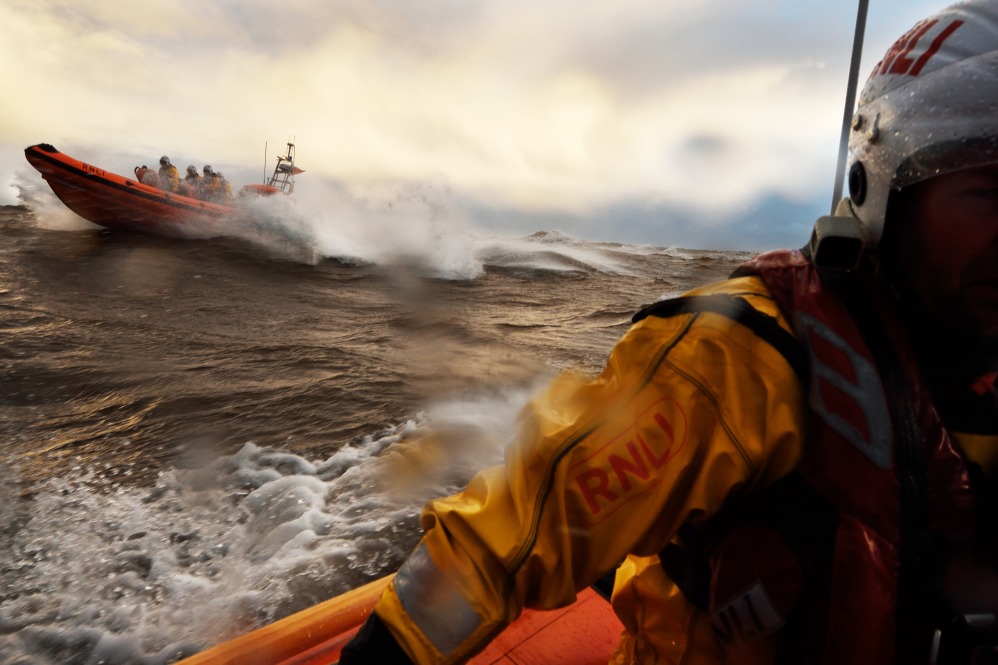
For nearly 150 years, lifeboats have been stationed at both Staithes and Runswick. Today’s inshore lifeboat is located in the small fishing village of Staithes – a B class inshore lifeboat that is one of the fastest in the RNLI fleet. It’s an Atlantic 85 inshore lifeboat called Sheila and Dennis Tongue. The Tongue family generously donated four of those boats to the RNLI, and members of the family were at the naming ceremony in 2017.
‘At Staithes, we’re not a particularly busy station,’ crew member Richard Pennell tells us. He lives and work in Staithes as a crab and lobster fisherman, but volunteers at the Staithes station. He joined in August 2013 and says he ‘didn’t have to think twice’ when he was asked to volunteer. When we ask Richard his favourite element of his role he says: ‘I like to think it’s passing on advice to people. When we rescue people, giving a bit of advice is vital.’
Being a small station on a particularly unpredictable area of the coast, by what is predominantly a holiday village with second homes, crew members here typically get anything from 14 to 24 calls a year. ‘They are often to people cut off by the tide, due to the nature of the coastline with high cliffs and long, sloping scars,’ Richard explains. ‘We rescued a 77-year-old lady , and we also rescued a lady with a prosthetic foot. Sadly though, the first three calls we had in the first lockdown were missing persons.’
Read More: Meet the Ethical Jewellery Maker inspired by the coast
Where are you called out to most often?
Certainly the cliffs along this coast. It’s called the Jurassic Coast and it’s fantastic for people looking for fossils because it’s constantly eroding – but that means it’s also very dangerous. While, along with the RNLI, I fully embrace people wanting to come and enjoy the coast, I can’t stress enough how important it is to spend as little amount of time as possible under and around those cliffs. Despite there being signs around the cliff-lines, many will still pitch up and lay their picnic blanket underneath.
How can we stay safe by the sea?
Check the tide times. They’re online. When you visit Staithes, use the Whitby tide times. Be aware that the tide rushes in fast. Ask the local residents, ask the lifeguards and consult the coastguard if in doubt. The thing with the North Sea is, it’s so cold – that’s not me trying to drive people away from the water, I’m just reminding them to respect it. The majority of people we rescue along this coastline had no intention of actually being in the water. They simply misjudged the tide.
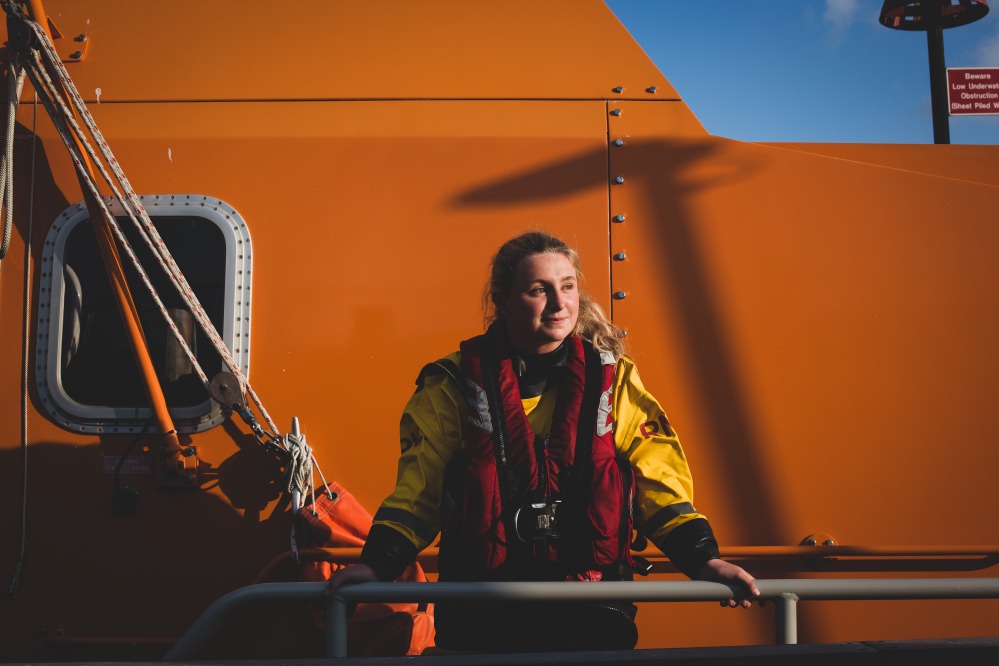
Whitby Lifeboat Station was one of the earliest to be established (in 1802) and its first lifeboat was built by Henry Greathead of South Shields, the builder of the first lifeboat. Crews at Whitby have been saving lives for more than 200 years and have received RNLI medals for gallantry 36 times. Today, the station has 21 volunteer crew and two full time members of staff, and operates one inshore and one all-weather lifeboat. Their D class lifeboat is ideal for searches and rescues in shallow water and confined locations, often close to cliffs, among rocks and even inside caves. Their Trent class is an all-weather lifeboat which was developed in the early 1990s.
Leah Hunter, who was appointed their first female helm since the inshore lifeboat came to the town in 1966, says the best element of her work for the RNLI in Whitby is ‘the buzzing feeling you get once you’ve helped rescue someone’.
‘When that pager goes off, everyone gets this rush of adrenaline, because we don’t know what the job might be. It could be anything – we could be called to go save a dog or to help rescue crew from a sinking boat.’
Read More: The North Shields Artist on his Coastal-Inspired Art, Attention from Sam Fender and his Pride in the Region
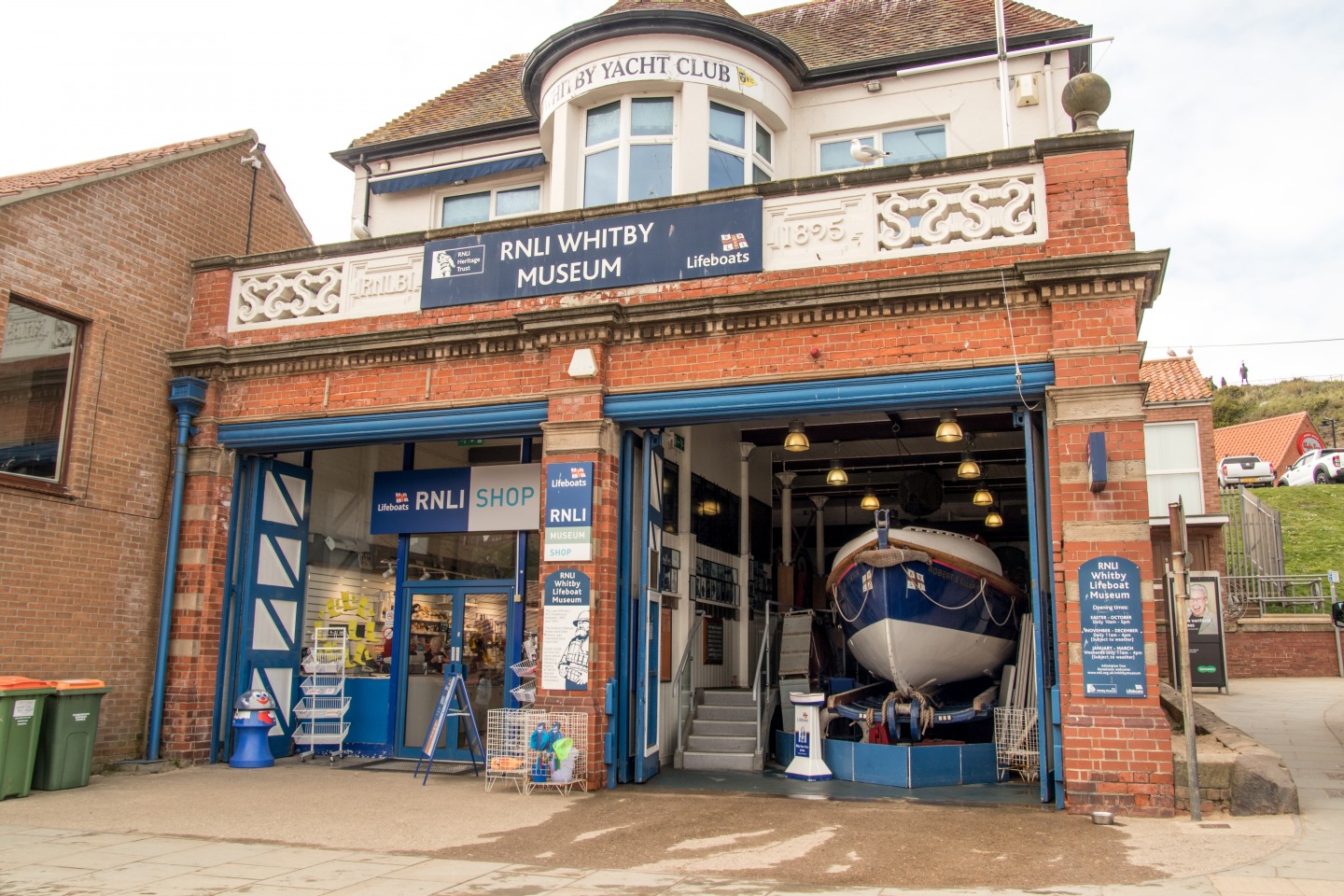
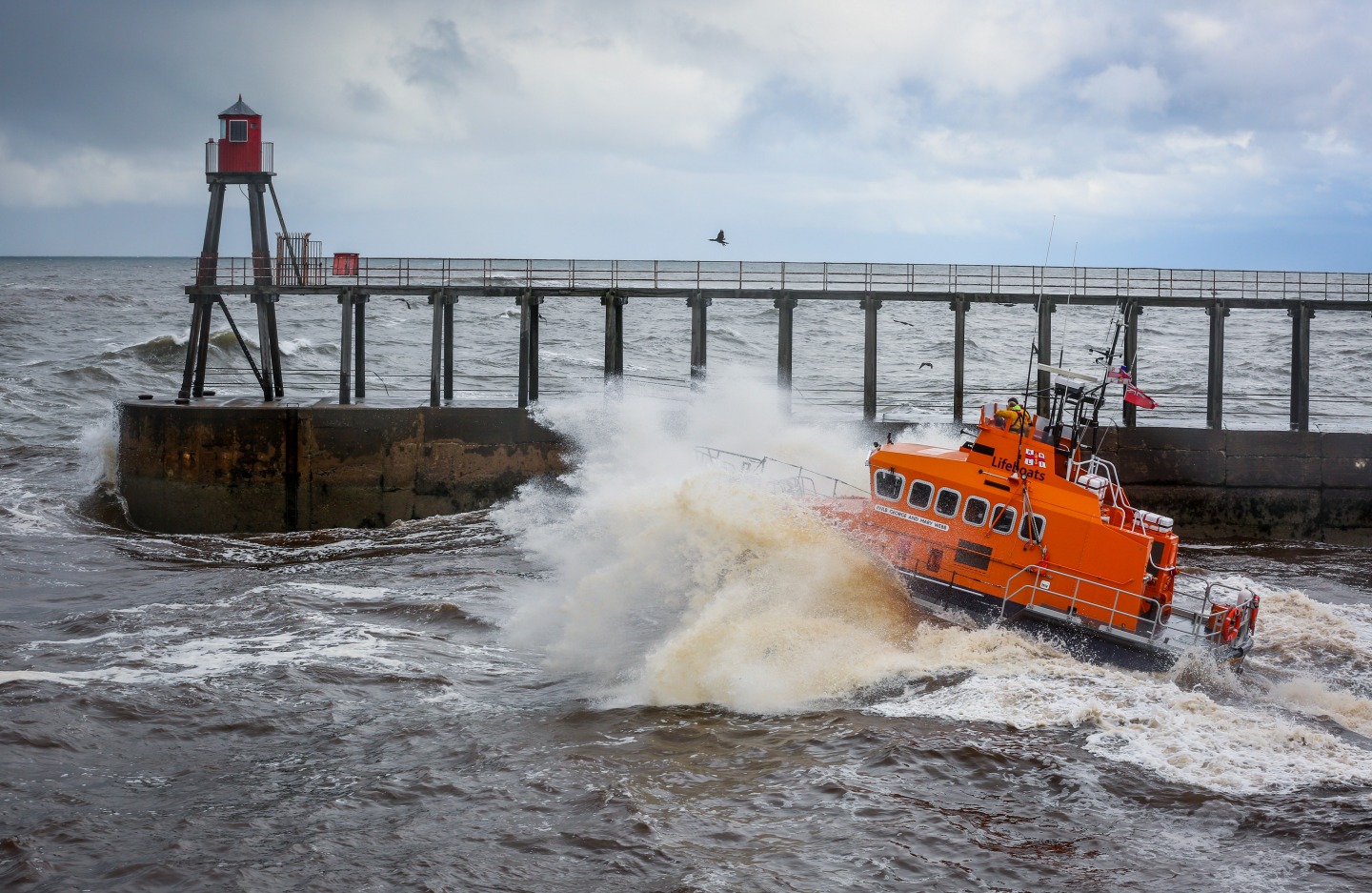
In Whitby, Leah and the rest of the crew average around 50 call outs per year, with the majority of call outs being people cut off by the tide, boats which need to be towed, and incidents requiring first aid assistance. ‘On a lifeguarded beach there are trained professionals to help keep you safe – they’ll be on hand if something goes wrong, in or out of the water,’ Leah says.
Where are you called out to most often?
The majority of our shouts are to those who get themselves cut off by the tide. The tide can come in surprisingly fast, and simply walking further up the beach and away to safety might not be an option. It’s so important visitors check the tide tables before heading to the beach, then, while at the beach, stay aware of their surroundings and the tide’s direction.
How can we stay safe by the sea?
Go with a friend or, if you’re alone, tell someone where you’re going and when you’ll be back. Take your phone and keep it in a waterproof pouch. That way it won’t get wet and you can call for help if you get into difficulty. Go to a lifeguarded beach, and make sure you stay between the correct flags. If you are on the water, wear a personal floatation device such as a lifejacket or buoyancy aid and try to avoid offshore winds; which can make it much more difficult to return to shore. Always wear a leash when surfing or paddle boarding. The leash will help you stay connected to your board if you get into trouble and help you stay afloat. It sounds obvious, but always wear suitable clothing for the time of year. In the summer, you might be able to get away with a swim suit. But if you are going to be in the water for a long time, you might want to upgrade to something that keeps you warmer.








